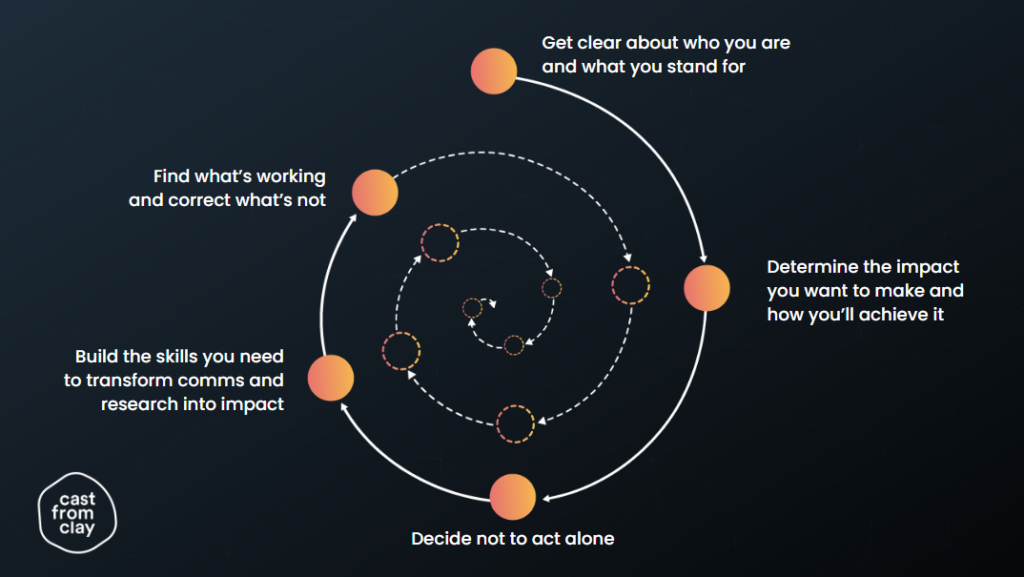Organisations working on policy and research trade in expertise. That comes with risks.
Remember this?
‘The people of this country have had enough of experts from organisations with acronyms saying that they know what is best.’
Michael Gove
I sometimes tell people that Michael Gove’s immortal words are the unofficial founding story of Cast From Clay.
This was 2016, and a lot has happened since. But it remains an important moment.
It confirmed to us that organisations focused on research and evidence would have to work doubly hard to gain a foothold in our social and political discourse.
The brand of expertise is shaped by culture. That makes it harder to control.
We’ve worked ever since with foundations, NGOs and think tanks to improve their communications with the goal of getting policy unstuck. We help them navigate the complexities of policy narratives, and in doing so to shape the policies of tomorrow.
So, we know from first-hand experience that expert organisations face many communications challenges.
One of them is this: what Michael Gove’s statement shows is that ‘expert’ and ‘expertise’ are brands. If organisations and individuals are to invoke said brands for credibility, we need to be really aware of the implications.
Experts show up everywhere in our popular culture: in TV shows and books like House, Sherlock Holmes, and Harry Potter, to films like Jurassic Park, Arrival and Don’t Look Up.
These archetypes shape how we perceive and categorise the experts we encounter outside of fiction.
They shape the ‘expert’ persona some inhabit in media appearances and on social media accounts.
Perhaps most importantly, they help audiences decide who they are willing to listen to and who they are not.
If you’re in the business of expertise, you’re already having to play catch-up with our tropes and archetypes. If you’re not aware of these tropes, you may be playing into them unawares, activating the related associations – for better or for worse.
Are you giving off traditional or maverick? Anxious or assured? If you don’t know, then you’re not in control.
Once you know the tropes, you can learn how to work with them.
Being aware of what tropes you might be activating with your brand personality is an important step in having more control over the personality you’re emitting to others (and therefore how likely they are to listen to you).
Once you have that awareness you can decide if you’re happy with that or if you need to make some tweaks.
At Cast From Clay, we think of having impactful research and policy communications as a cycle – or rather a spiral.
How to have impact with your policy and research

It starts with working out who you are and what you stand for. That way, you can work out what you want to achieve.
Once there, you can work out who your allies are: who can help you reach your goal?
You can then identify the skills you need to enhance to reach that goal. Whether that’s training (we’ve got some of that) or specialist consultancy (oh look, we have that too) to execute your goal with intention and skill.
From there, you’re evaluating and course correcting, and trying again.
But the starting point is always: who are you? Your brand – as organisations and as individual experts – matters. It’s the foundation upon which the rest is built.





